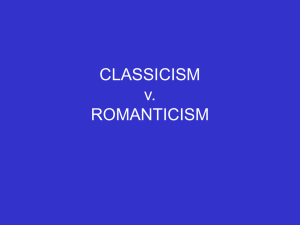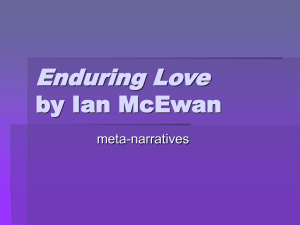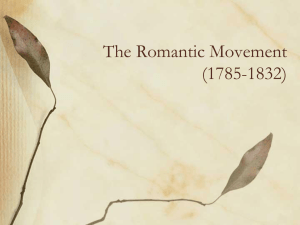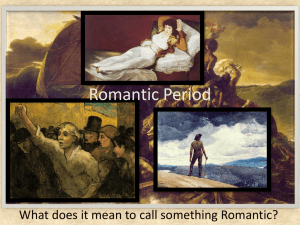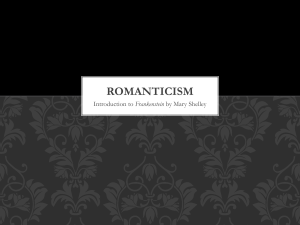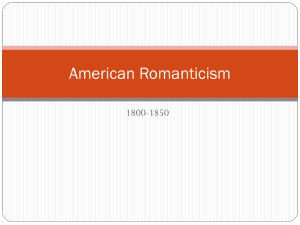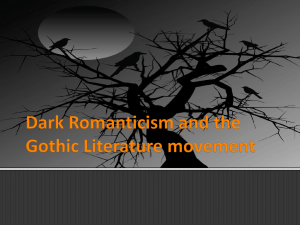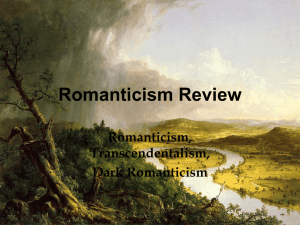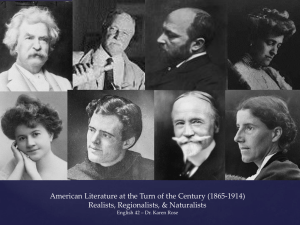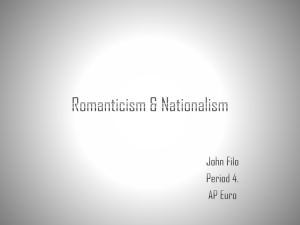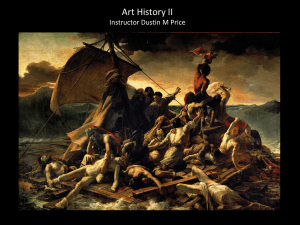Document
advertisement
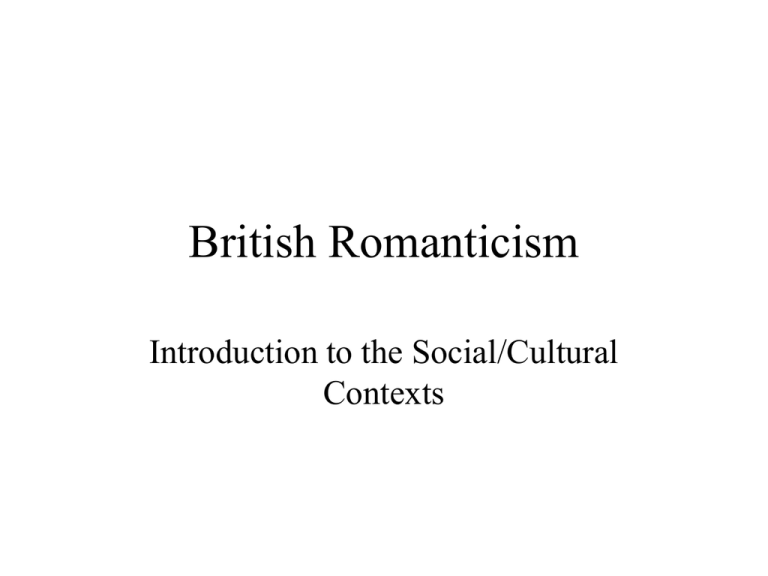
British Romanticism Introduction to the Social/Cultural Contexts Influences behind British Romanticism British Romanticism the Europen Enlightenment of the 18th Century the Industrial Revolution German Romanticism (1770s--) The Age of Enlightenment • The faith in the autonomy of reason as instrument • The belief in mankind’s essentially similarity in all ages and origins • The projected order governing nature, man, society and human perfectibility The Industrial Revolution • Agricultural, technological, and communication progresses through machines and systematic organization • Increase of population and urbanization • The rise of the middle/working classes, their rights versus feudalistic hierarchy German Romanticism • Time: 1770s-• Figures: J. G. von Herder, Johann Wolfgan von Geothe, Fridrich Schiller • The enlightenment: the mind as recipient of the universe; German Romanticism: the mind as the creator of experience • Aiming to establish indigenous German literary tradition Influences behind British Romanticism British Romanticism 1.the emphasis on nature: the sublime and the mysterious 2. the mind: the imaginative, the emotional, and the prophetic voice/vision 3. individual mind versus society the Europen Enlightenment of the 18th Century 1. faith in the autonom of reason as instrument 2. belief in the mankind as essential y similar in ages and orgins 3. projected order governing the world and mankind's perfectability the Industrial Revolution 1. agricultural and technological progresses 2. increase of population and urbanization 3. the rise of the middle/working classes German Romanticism (1770s--) Johann Wolfgang von Goethe, Friedrich Schil er 1. the mind creates, not receiving experience/universe 2. aiming to establish indigenous German literary tradition Influences behind British Romanticism British Romanticism 1.the emphasis on nature: the sublime and the mysterious 2. the mind: the imaginative, the emotional, and the prophetic voice/vision 3. individual mind versus society the Europen Enlightenment of the 18th Century 1. faith in the autonom of reason as instrument 2. belief in the mankind as essential y similar in ages and orgins 3. projected order governing the world and mankind's perfectability the Industrial Revolution 1. agricultural and technological progresses 2. increase of population and urbanization 3. the rise of the middle/working classes German Romanticism (1770s--) Johann Wolfgang von Goethe, Friedrich Schil er 1. the mind creates, not receiving experience/universe 2. aiming to establish indigenous German literary tradition
